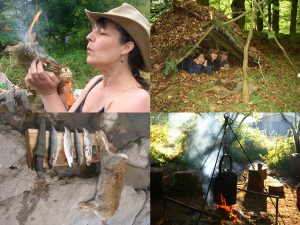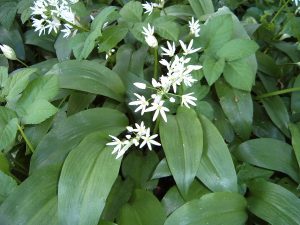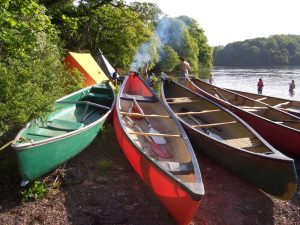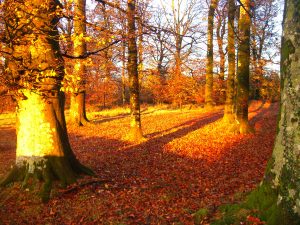Nature awareness - introduction

“Nature is not our enemy, to be raped and conquered. Nature is ourselves, to be cherished and explored.” – Terence McKenna
Contents
What is nature awareness?
It’s understanding and appreciating the natural world. Nature awareness can be sparked at a young age by contact with pets, gardens, days at the beach or in the woods, or even books or TV programmes (David Attenborough has probably been responsible for igniting a love of nature in a lot of people). Unfortunately, a modern aspect of nature awareness is an understanding of the damage that is being done to nature, and more importantly, what can be done about it. Its importance can’t be overstated, as humans are part of nature too, and what harms nature harms us.
The best way to increase awareness of nature is by spending time outdoors. Nature awareness can be gained from something as simple as going for a walk in the park, or as challenging as learning how to forage for wild food and light a fire to cook it. From birdwatching or hiking to bushcraft, wild swimming, foraging, tree-climbing, or simply sitting still and enjoying it, the list of things you can do in nature is almost endless.

Human beings evolved to be in nature and we have an instinctive connection to it. The biophilia hypothesis suggests that there is an innate and necessary bond between us and other living things. It’s why we have pets or houseplants. These days, however, we are becoming increasingly disconnected from nature (and what contact we do have is often highly managed and sanitized), with serious consequences for humans and for nature.
History
Prior to the agricultural revolution, humans lived in groups of hunter-gatherers, and according to writers like Murray Bookchin, lived in harmony with nature, taking what they needed in terms of food, fuel, clothing, medicines and shelter, moving regularly so as not to deplete resources and not creating any waste that nature couldn’t easily deal with – although they didn’t live well alongside large mammals (such as sabre-tooth tigers, cave bears, mammoths, giant sloths etc.), which they often drove to extinction because they represented either danger or a too-easily harvested source of food. After the birth of agriculture, the relationship with nature became more of a struggle – to keep farmland weed- and pest-free and to prevent wild animals eating livestock or crops, for example. The aim was to ‘tame’ nature – until the Romantic movement in the 19th century made wild nature fashionable. However, interaction with it involved hunting, zoos, collecting butterflies etc. – studying by destroying. Nowadays, that attitude has changed in the West, and most people prefer photographs to stuffed animals, and safaris to zoos. Unfortunately though, Westerners flying to holidays in nature on the other side of the world is contributing to its destruction. Maybe the ideal would be for all of us to live in beautiful, natural places so that we don’t feel the need to fly somewhere else to escape.

Today, just over half the world’s ever-expanding population lives in cities. Since the Industrial Revolution, when people started moving into the city en masse, we have gradually lost touch with the natural world, to the extent that most of us now don’t really know where our food comes from or how it’s produced. We spend more time than ever indoors, often in front of screens, experiencing the world at one remove. This lack of connection with nature results in people paving their front gardens, spraying poisons on weeds (aka wild flowers), or replacing hedges with walls or fences etc.
Obesity, particularly among children, is fast becoming one of the major health problems of the 21st Century. In addition to the lure of the screen, movies and the media have fuelled a perception of the world outside our window as potentially threatening and many parents are now reluctant to let their children play unsupervised in the park or woods as they themselves used to. There are, therefore, growing concerns that children are growing up less healthy and well-adjusted than the previous generation due to a lack of contact with the natural world.

Valuing nature, however, doesn’t mean putting a price on it. Nature keeps us alive on this planet – how can you put a price on that? But also, it’s just as impossible to put a price on the health, aesthetic or psychological benefits that nature gives us. Attempts by economists to put a price on nature in order to protect it is the wrong approach, not just because of its impossibility, but also because people or companies with the most money (or the power to do it anyway, without paying) will be able to do the most damage. This approach strengthens the position of those with the most power (banks and corporations) at the expense of the rest of us. Nature has value for its own sake, not in terms of economics. Economics is a subset of nature, and all economic value is ultimately derived from it.
What are the benefits of nature awareness?
As much as we may crave the ‘safety’ and predictability of the urban environment, it’s notable that even in large cities, property values are highest in proximity to natural, green spaces, suggesting that we all feel better when we live close to nature. A growing body of empirical evidence has begun to demonstrate links between exposure to nature, specifically green vegetation, and better physical, emotional and mental health. Being outdoors also encourages you to move your body (something we all need to do more of) and hone your observation skills in a changing environment.
Humans also have an instinctive stress reaction to noise. Back in the cave, a loud noise meant potential danger, triggering the ‘fight or flight’ response. Given that the urban environment is full of loud noises, a bit of peace and quiet is just one of the benefits of going into nature. The Japanese know this, with their concept of shinrin-yoku, or ‘forest bathing’ – simply spending time in the woods, absorbing the atmosphere to reduce stress.
In addition to mitigating the stress of city living, time spent in nature can also be beneficial for a range of conditions. Nature therapy involves taking people into natural spaces in order to treat a range of conditions such as post-traumatic stress disorder or dementia. While this kind of therapy is not yet widespread, it does have a well-established tradition, beginning with the Quakers in the 16th century, who took mentally ill people out of asylums, where they were often chained to beds and taunted, and onto farms or into the countryside.

For children, time spent interacting with nature, including developing nurturing relationships with animals, helps them to form positive associations with the natural world and develop enhanced senses, empathy, imagination and creativity, and to be fitter and healthier. By contrast, while not yet fully recognized by the mental health community, the theory of nature deficit disorder suggests that spending insufficient time in nature may be contributing to a range of behavioural problems such as attention deficit disorder. Organisations like the Field Studies Council (FSC) are concerned that children don’t get out of the classroom enough these days and therefore provide education resources or run programs to take children into nature. They aim to foster greater understanding of and concern for the natural world through first-hand experience and encouraging children to record and share their observations.
And it’s not just people who benefit from interacting with nature. The less time we spend in the natural world, the less connected we are to it. The less connected we are, the less we care. The less we care, the less will there is to protect plants, animals and wild spaces. This has an obvious knock-on effect of further ecosystem degradation and species loss (not something we can afford right now). Reconnecting people with nature is therefore becoming increasingly important in the field of environmental conservation. The FSC is just one of a number of long-standing voluntary societies dedicated to promoting environmental understanding through recording flora and fauna, as well as running courses for students, educators, public bodies and government employees. Today they have one of the largest databases in Europe and are able to identify trends such as changes in species numbers or behaviour and to bring them to the attention of policy makers.

What can I do?
Appreciating nature means getting down and dirty with it – getting yourself into mountains and forests, rivers and the sea, and getting your hands into the soil in your garden, allotment or window-box to grow things. If you live near a park or in the countryside then nature is literally on your doorstep. Even the largest, most chaotic of cities have green pockets where you can go and watch the birds or smell the flowers. Nature is free and accessing it doesn’t have to be any more expensive than the cost of a bus or train ticket.
There is a growing movement to increase our contact with nature through nature-focused teaching, ‘forest kindergartens’, or green spaces and wildlife corridors in cities. If you want to try fun and challenging activities in nature, a number of organisations run courses in bushcraft, foraging and nature observation etc. If you prefer to learn about it under your own steam, there are literally thousands of guide books you can buy or free resources available online to help you identify plants, birds and animals. Obviously you don’t have to study nature to enjoy it, but knowing just a little can improve the experience no end.

Nature awareness is generally a safe pursuit but the natural world is not without its dangers and must always be treated with respect. A little common sense goes a long way. If you’re going for a walk in the country make sure you have a good map, check the weather forecast and make sure you’re properly kitted out (appropriate footwear, warm/waterproof clothes). There are numerous outdoors stores where you can buy everything you need. Take sufficient food and drink, check transport timetables, tide tables if you’re by the sea, have your phone fully charged in case of emergencies, keep an eye on the time/light and make sure you know how to get home. If you’re going off alone, tell someone where you’re going and when you’ll be back. If you’re in a group, always make sure you’ve got everyone. If you’re considering trying any of the more involved/challenging activities mentioned here, such as foraging for wild food, doing a course or obtaining a guide is a good idea before you begin.
Finally, remember that your interaction with nature should never be to its detriment. Be respectful of the spaces and species you encounter and take your rubbish home with you. A good rule of thumb is the oft-quoted “take nothing but photographs; leave nothing but footprints”.

Specialist(s)
Thanks to Sue Townsend of the Field Studies Council, Nigel Berman of School of the Wild and Kim Brown of Nature Therapy CIC for information.
The specialist(s) below will respond to queries on this topic. Please comment in the box at the bottom of the page.

Nigel Berman founded School of the Wild in 2014. He’s spent twenty years creating projects that communicate different ways of seeing the world. He loves sitting round a fire in the woods, and foraging for wild plants. He has a passion for the outdoors, nature connection and ecology, and wants to do something to help fix the broken relationship between people and the planet.















1 Comment
We believe that nature awareness is important to both our physical and mental health. Many of our customers seek out our #grassfed beef for nutritional healing – ‘contact’ with nature not only applies to our sight, sound & touch but also our sense of smell & taste too.